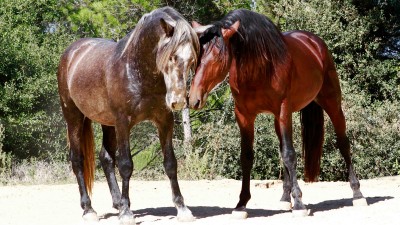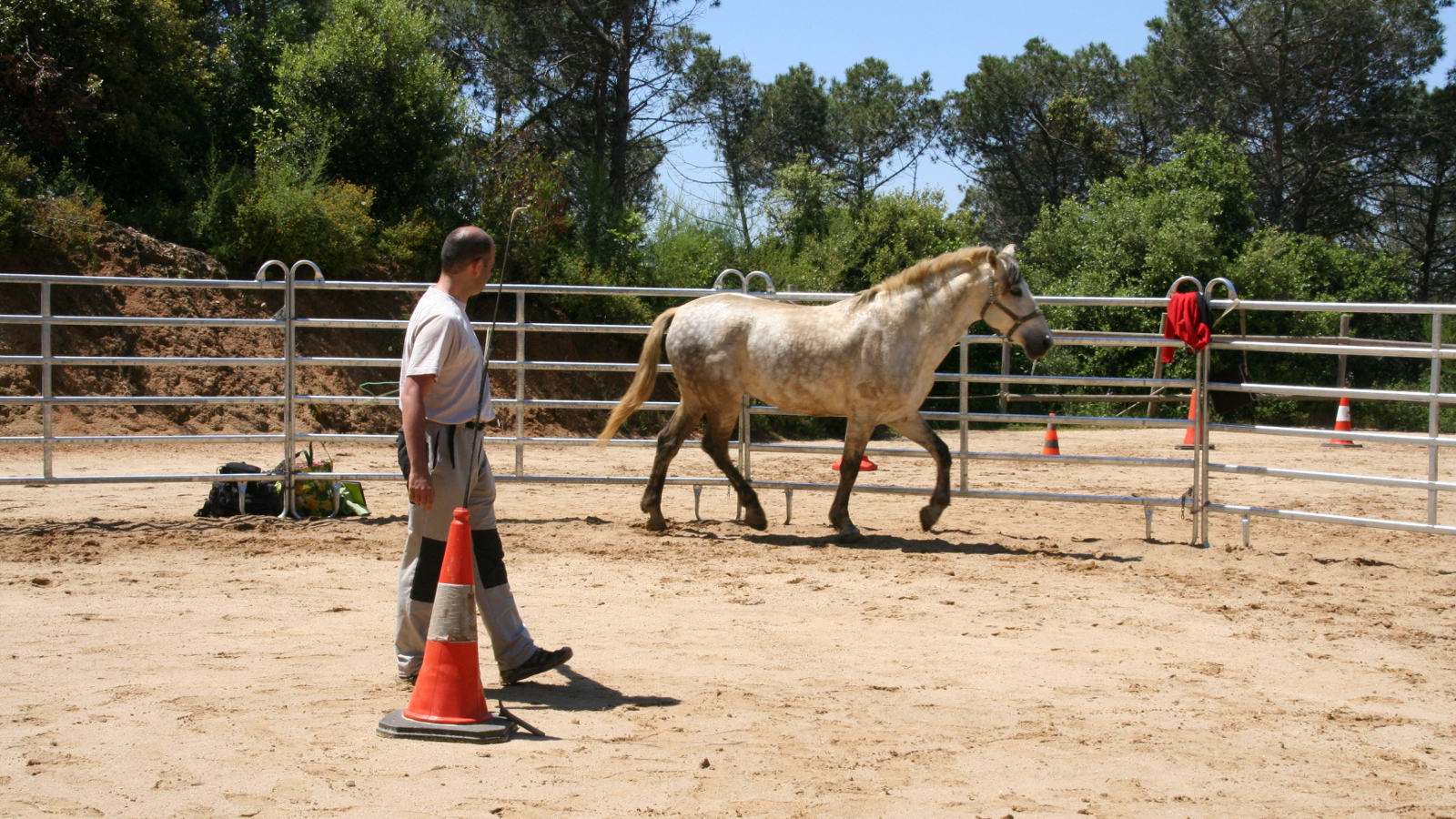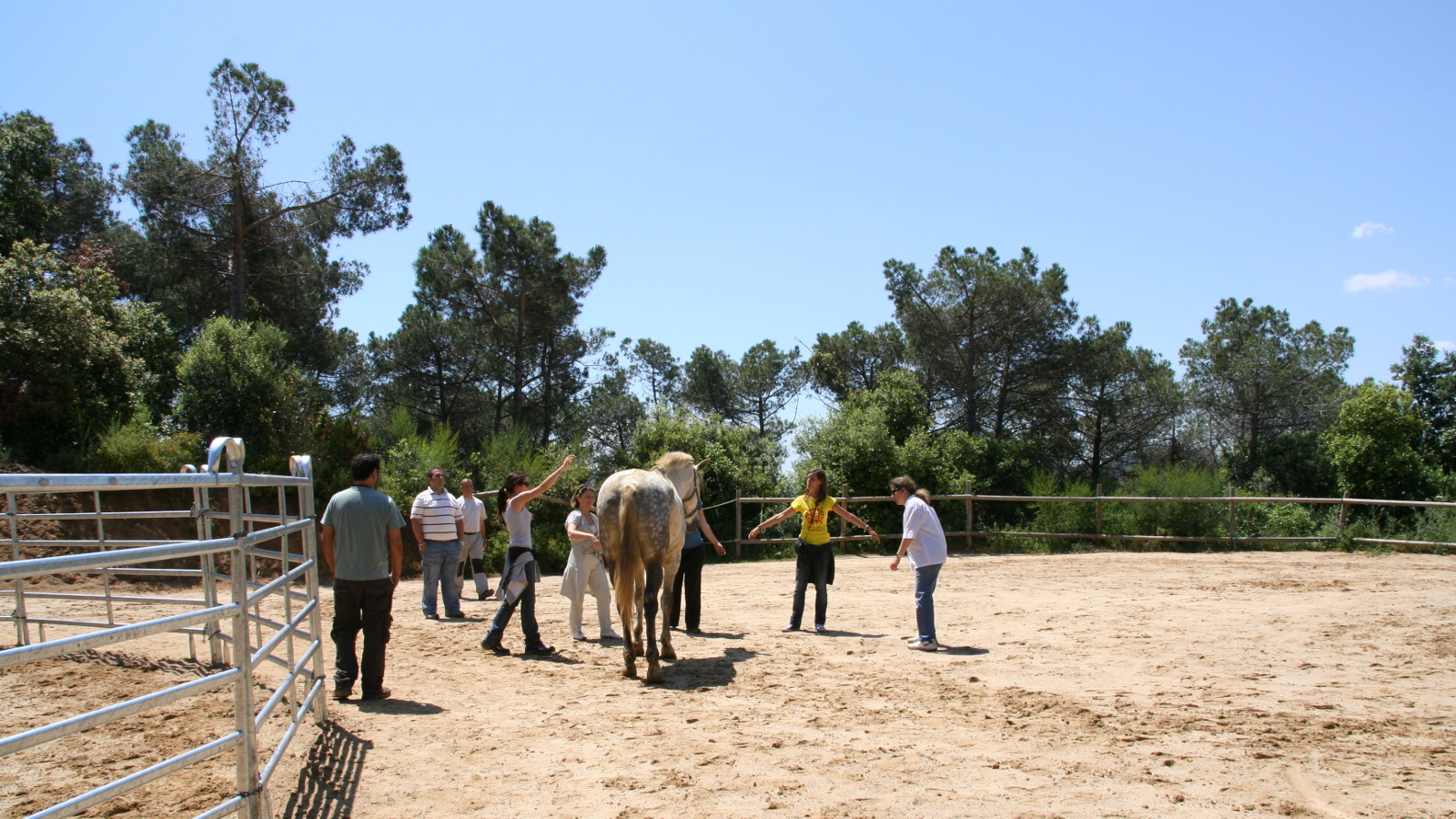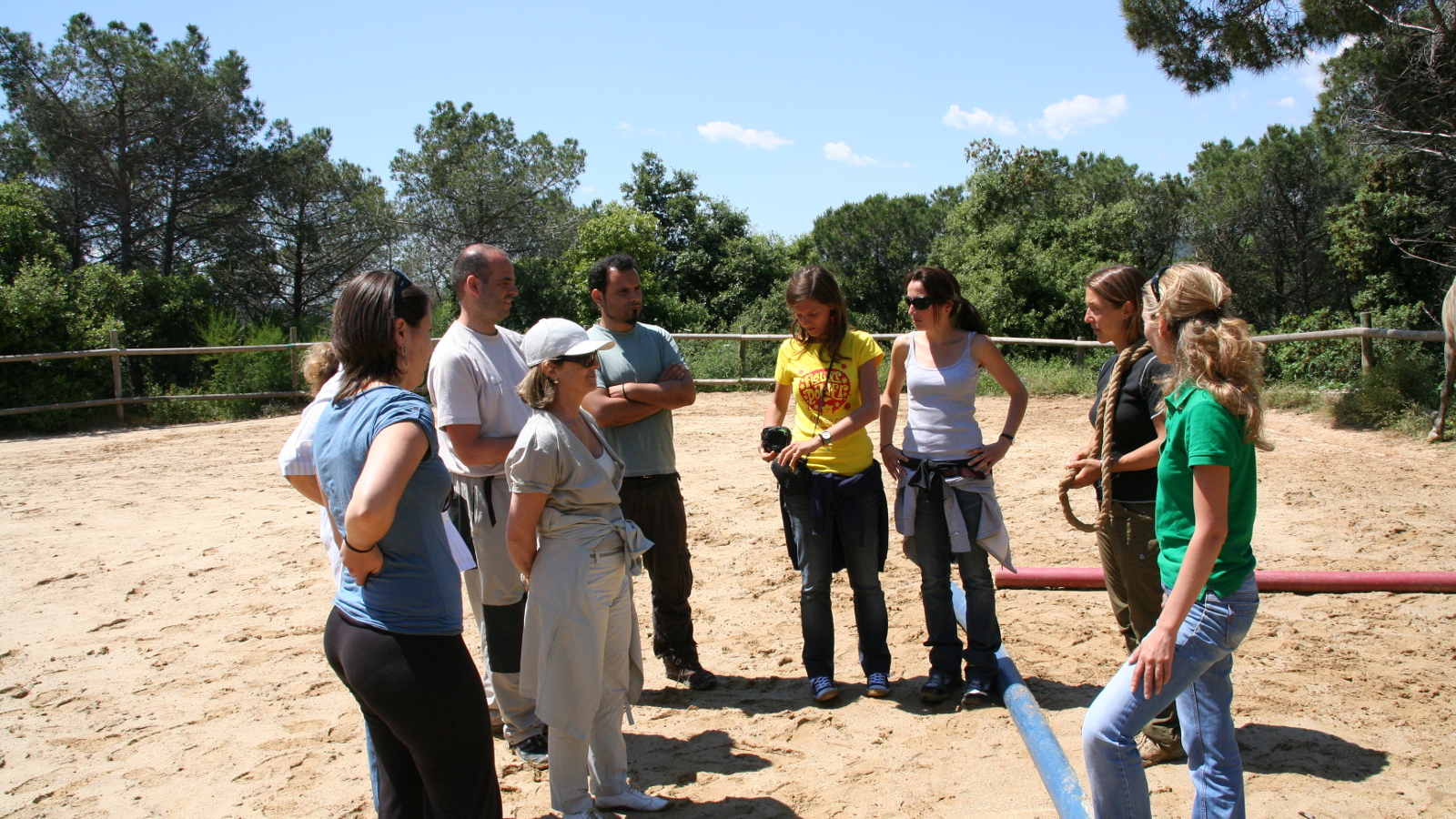Interaction with horses gives us the benefit of instant feedback without filters, that allows us to see our own attitudes reflected more clearly and quickly. The horses act as mirrors of our emotions and attitudes. The instruction, given in our special environment, helps us disconnect from daily routines and connect more intensely with ourselves. Thus we become aware in less time, and in a deeper and more natural way.
Assisted coaching with horses is based on the structures of classical coaching, but it has its own methodology. Incorporating horses into coaching makes the process a fully dynamic experience, a lasting memory.
Companies can always benefit from improved leadership and teamwork.
Horses naturally attract people, opening up many more possibilities of communication in a short space of time.
Interaction with horses gives us the benefit of feedback without filters. It allows us to see our attitudes quickly and clearly. This benefit is very important for leadership and teambuilding.
Assisted coaching with horses is based on the structures of classical coaching, but it has its own methodology. Incorporating horses into coaching makes the process into dynamic fully experiential, making it lasting memory.
“What we hear, we forget
what we see, we remember
and what we experience, we learn“
The horses reflect us like a mirror, showing the attitudes of the participants, promoting and putting into conscious action qualities like leadership, non-verbal communication, empathy and coherence.
How do the coaching sessions with horses work?
Horse coaching dynamics are always groundwork and liberty, not ridden — no previous experience is required!
Connection and communication with the horse must be established at the start a session. We will work with you to achieve it. Then the horse will normally be attentive to us. But if it isn’t, it will give us feedback to let us know which abilities we must exercise to establish the connection.
During this interaction, with the coach’s help, the student learns to recognize the horse’s feedback about its emotional state and its intentions. This information inspires students to reflect upon new possibilities to apply to their daily routine.
The why is not important, but the how, in the work of assisted horse coaching. One does not ask whether an action was good or bad. The question is, how do we act to resolve an issue; how do we think, and what resources have we used.
Thematic dynamics for the session will be chosen depending on the selected subject, on the way the participants interact with the horses, among themselves, and with the group.
The participant is completely protected from the surroundings, the coach, and above all from the horse, who does not pass any judgment, it just reacts.
Why work with the Farriols Horses?
 The horses, because of their nature as prey animals, have developed the capacity to interpret their environment efficiently.
The horses, because of their nature as prey animals, have developed the capacity to interpret their environment efficiently.
This natural sensitivity, added to the qualities of the Farriols horses, who trust of people and are predisposed to communicate, gives participants a unique learning experience.
What do the horses bring to the training?
- They act as a mirror of our emotions and states of mind. They tell us how we are and what we transmit moment by moment.
- They give us a true and immediate feedback
- They do not judge us
- They make us be present
- They transmit calm and serenity to us
- They increase our sensitivity and perception of the environment
- They help us reflect upon and connect with ourselves
- They teach us the importance of constancy, coherency, and adequacy
- Living the experience makes us feel and observe our emotions, making and the process of change easier.
- They constantly require good leadership, and show us the qualities necessary to achieve it
Benefits and skills that we can gain from the horses
- Empathy.
- Non-verbal communication.
- Coherence and clarity.
- Our leadership: assimilate and transmit the necessary qualities to become a good leader.
- Teamwork.
- Self-love.
- Confidence.
- Assertiveness.
- Impulse control.
- Tolerance of frustration.
- Adequacy: give the appropriate answer at the proper moment.
- Improving the capacity of attention.
- Flexibility and adaptability. learning to look for different possibilities if the first one doesn’t work.
- Regulating our energy.
- Improving our relationships with people and the environment.



